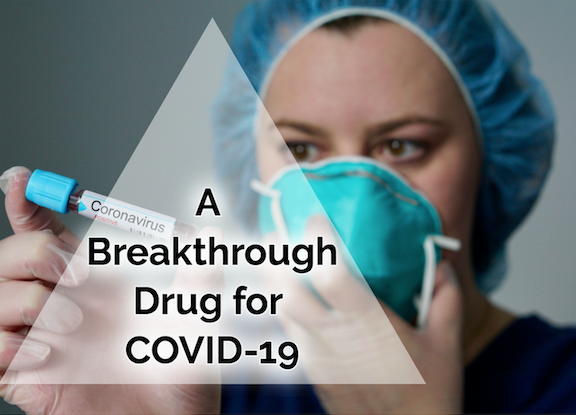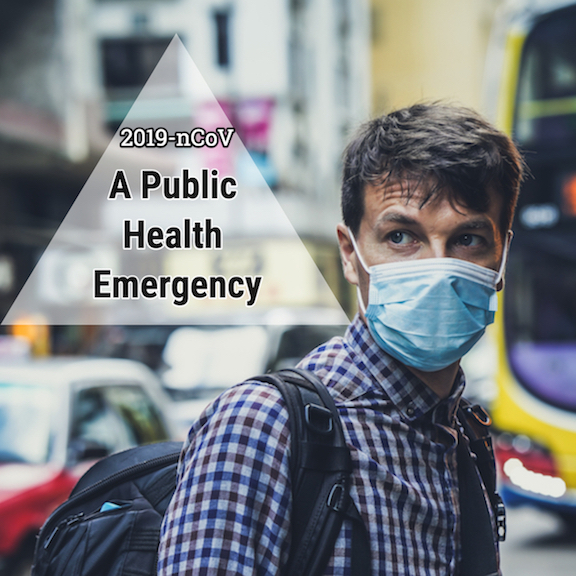Researchers in every country are racing for a treatment and/or preventative for COVID-19 as medical professionals are starting to have issues treating patients with traditional protocols. Although trials for a vaccine are underway, it will likely not be made available for another 12-18 months in the best of circumstances.
The last three days have seen major developments in the way of a treatment for COVID-19. On March 13, 2020, an academic study was conducted showing that the existing anti-viral drug Chloroquine used for malaria & other conditions was highly effective in treating COVID-19. The CDC showed further support of this information stating that chloroquine also has strong potential as a preventative measure against previous strains of coronavirus in the lab.
Information about Chloroquine:
- It has been a globally available drug that has been in human use against malaria, autoimmune conditions, and various other conditions since 1945.
- CDC states this medication has strong preventative & therapeutic antiviral effects against SARS coronavirus which has significant similarities to COVID-19.
- Safe for prescription to adults, children, and pregnant & nursing mothers.
- Low-cost & readily available.
- Can be implemented for treatment immediately given its human safety profile & existence.
However, a study done on March 9, 2020 proved Hydroxychloroquine, a less toxic form of Chloroquine, to be more potent to inhibit SARS-CoV-2 in vitro.
March 9th study:
- The effects of both Chloroquine and Hydroxychloroquine were tested using SARS-CoV-2 infected Vero cells.
- Hydroxychloroquine concentrations in lung fluid were stimulated under 5 dosing regimens to find the most effective regimen considering the drug’s safety profile.
- Based on Physiologically-based pharmacokinetic models (PBPK) models results, a loading dose of 400mg twice daily of Hydroxychloroquine given orally, followed by a maintenance dose of 200mg given twice daily for 4 days is recommended.
- Hydroxychloroquine was found to be 3 times more potent than Chloroquine in vitro when given 500mg twice daily for 5 days in advance.
Further development came on Wednesday, March 17, 2020, when a study conducted on Hydroxychloroquine led by infectious disease expert Didier Raoult showed effective in inhibiting SARS-CoV-2.
March 17th French study on Hydroxychloroquine:
- Involved 24 patients who were some of the first to become infected in south east France.
- The treated group was given 600mg of Plaquenil (the brand name of Hydroxychloroquine) each day for 6 days and depending on their clinical presentation, azithromycin was added to the treatment.
- Patients who did not receive Plaquenil were still contagious after 6 days, but those who did receive the Plaquenil, only 25% were still contagious. Essentially, only 25% of the patients who received Hydroxychloroquine still carried coronavirus after 6 days, compared with 90% of patients given placebo.
Hydroxychloroquine not only has the same mechanism of action as chloroquine & more tolerable safety profile, but it also suppresses production and release of proteins involved in the inflammatory complications of many viral diseases. This is the furthest development of a treatment for the COVID-19 pandemic since its outbreak in Wuhan, China back in December 2019. There were several studies investigating Kaletra (a combination of two antiviral medicines lopinavir & ritonavir) used for HIV treatment, however they proved to be unsuccessful.
What’s Next?
Now, U.S. researchers are following French lead, and have launched studies to see whether widely available, low-cost generic drugs can be used to help treat COVID-19. A 1500-person trial led by the University of Minnesota began this week to see if Hydroxychloroquine can prevent or reduce the severity of COVID-19. Two other trials were also launched studying the blood pressure medication losartan as a possible treatment option, but there have been no updates on this as of yet. The University of Minnesota expects that results from these trials will likely be out in weeks, not months.
Many other companies globally are following suit with trials for treatment of COVID-19.
Other clinical trials launching:
- The swiss pharmaceutical company Roche is now working with the FDA to start randomized, double-blind, placebo-controlled clinical trial to study the arthritis drug Actemra in hospitalized patients with severe COVID-19 pneumonia caused by the novel coronavirus. Along with the U.S. Department of Health and Human Services’ Biomedical Advanced Research and Development Authority, they plan to begin enrolling patients in early April globally, including the U.S.
- Pharmaceutical companies all over the globe are also working to develop treatments for COVID-19 including Gilead Sciences Inc. They are experimenting the antiviral drug Remdesivir which can be given to hospitalized patients via IV infusion over several days.
Hydroxychloroquine is the first we’ve seen to date with actual viable results and potential for prevention & treatment of COVID-19. Although Chloroquine also showed promise, it looks like the safer footprint and results of Hydroxychloroquine trials cannot be ignored. It is looking to be the safe frontrunner & likely candidate in the race for a preventative, treatment, and cure for COVID-19 with the numbers of confirmed cases & deaths growing exponentially daily.


